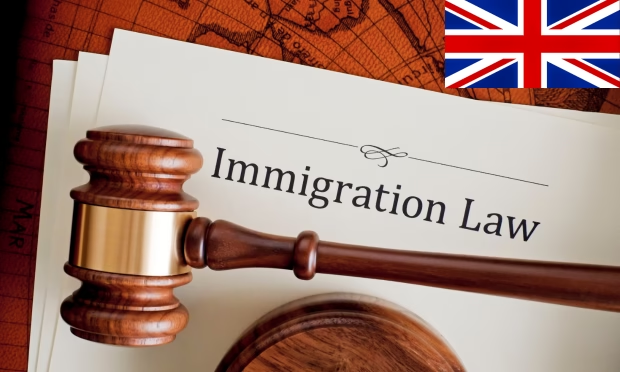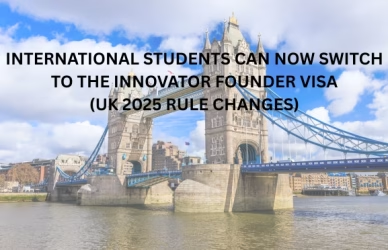The UK Home Office has introduced a series of substantial updates to the immigration system as part of its ongoing efforts to manage migration, respond to labour market needs, and strengthen compliance across visa routes. These reforms, implemented in 2025, are designed to support the government’s long-term strategy for a more selective and skills-focused immigration framework.
Overview of the 2025 Immigration Reforms
The 2025 policy update represents a significant shift in both tone and structure, particularly in the areas of skilled migration, family sponsorship, and health and care visa sponsorship.
1. Revised Skilled Worker Salary Thresholds
As of April 2025, the minimum salary requirements for Skilled Worker visa applications have increased:
- General threshold: Raised from £26,200 to £29,000
- New entrant threshold: Now £23,200
- Sector-specific thresholds: Adjusted in line with updated market data
Implications:
Employers must assess existing, and future offers to ensure salary packages are compliant. Failure to meet the new criteria will result in visa refusals and possible sponsor licence scrutiny.
2.Introduction of the Immigration Salary List (ISL)
The former Shortage Occupation List has been replaced with the Immigration Salary List (ISL). Unlike its predecessor, the ISL no longer offers automatic salary discounts.
Key Features:
- Focuses on roles with demonstrable national shortages
- Places emphasis on evidential support from employers and sectors
- Promotes wage alignment with UK standards
Implications:
Employers must review job roles against the ISL and avoid relying on previously applicable discounts when planning recruitment.
3.Changes to Health and Care Visa Sponsorship
Significant regulatory tightening applies to care worker sponsorship:
- Only Care Quality Commission (CQC)-registered providers may act as sponsors
- Family dependants are no longer permitted under the standard care worker visa (exempting senior care roles)
Implications:
Health and social care providers must ensure CQC compliance before issuing sponsorship certificates. Additionally, family migration planning should be reassessed.
4.Increased Financial Thresholds for Family Visas
The minimum income requirement for sponsoring a partner or spouse under the family visa route has increased:
- From £18,600 to £29,000, with a proposed rise to £38,700 in 2026
Implications:
Many sponsors may no longer meet the threshold under current earnings. It is essential to assess eligibility early, particularly for those applying after the transitional period.
5.Graduate Route Under Review
The Graduate Visa Route remains open in 2025 but is under formal review. The Home Office has signalled potential reforms aimed at:
- Ensuring alignment with UK workforce demands
- Preventing misuse of post-study migration
- Encouraging meaningful employment outcomes
Implications:
While no immediate changes apply, stakeholders should prepare for potential restrictions in 2026. Educational institutions should inform students accordingly.
8.Business and Visitor Visa Reforms
Adjustments to the business and visitor visa framework include:
- Expansion of permissible business-related activities
- Simplified rules for attending trade events, training, and intra-corporate tasks
Implications:
This enhances the UK’s attractiveness for short-term business engagement. However, visa holders must adhere strictly to the allowed activities to avoid compliance breaches
Strategic Recommendations
To ensure full compliance and minimise operational disruption, the following actions are advised:
- Employers should conduct an immediate audit of sponsored roles, salaries, and job codes
- HR teams must update internal documentation and ensure staff are briefed on new rules
- Family visa applicants should seek early legal advice to assess income eligibility
- Education providers are encouraged to prepare students for changes to the Graduate Route
- Care sector sponsors must confirm and maintain active CQC registration
Conclusion:
The 2025 immigration policy reforms reinforce the government’s focus on high-skilled migration and tighter compliance across all visa categories. While the system continues to provide pathways for international talent, it demands greater diligence from employers, sponsors, and applicants alike.
REFERENCE:






Wonderful beat I wish to apprentice while you amend your web site how could i subscribe for a blog web site The account aided me a acceptable deal I had been a little bit acquainted of this your broadcast provided bright clear idea
Fantastic beat I would like to apprentice while you amend your web site how could i subscribe for a blog site The account helped me a acceptable deal I had been a little bit acquainted of this your broadcast offered bright clear concept
ok
Thanks for sharing. I read many of your blog posts, cool, your blog is very good.
Your article helped me a lot, is there any more related content? Thanks!